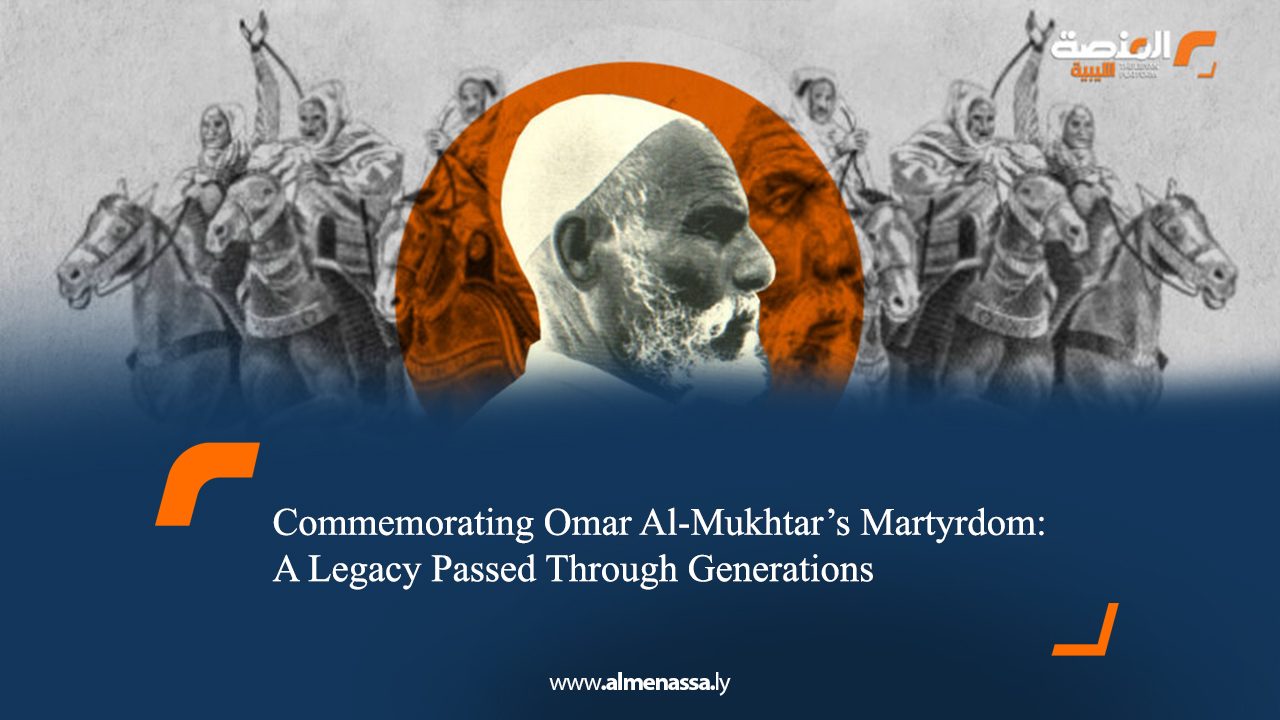Every year on September 16, Libya observes an official holiday to honor the martyrdom of Omar Al-Mukhtar, the “Lion of the Desert” and “Sheikh of Martyrs,” whose resistance against Italian colonialism remains a symbol of heroism. His story continues to be passed down from father to son, etched into the national and Arab consciousness.
Mukhtar’s Mausoleum: A Living Testament to Resistance
On the 94th anniversary of his execution, Libya’s Ministry of Electricity and Renewable Energy announced emergency maintenance to illuminate Mukhtar’s mausoleum. The work included a thorough inspection of the lighting system surrounding the site, replacing damaged bulbs and repairing technical faults. This act underscored the enduring presence of Mukhtar in Libyan memory.
Early Life and Formation: From Quranic School to Revolutionary Leader
Born in 1862 to a family from the Minifa tribe, Mukhtar lost his father at a young age and was raised by his uncle, who enrolled him in a Quranic school. He later joined a religious institute to study Islamic jurisprudence and Hadith. His brilliance during eight years of study caught the attention of his teachers in the Senussi movement, especially Sheikh Muhammad Mahdi al-Senussi, who took him on travels across Africa. These journeys deepened Mukhtar’s understanding of desert terrain and tribal dynamics—skills that would later prove vital in his military resistance. He rose through the ranks of the Senussi religious leadership and eventually settled as a sheikh in the Green Mountain region, where he balanced administrative duties with active resistance, including fighting British forces near the Egyptian-Libyan border, notably in the Battle of Salloum.
Armed Resistance: Desert Tactics Against Colonial Forces
When Italy invaded Libya in 1911, Mukhtar quickly mobilized, gathering 1,000 fighters from the Green Mountain to join Ottoman forces in repelling the Italian advance. He exploited the Italian army’s vulnerability in desert warfare, targeting remote camps near the desert and striking swiftly before reinforcements could arrive. His tactics exhausted the Italian forces and disrupted their supply lines, prompting them to shift strategies and adopt mass internment policies to terrorize civilians and cut off support for the resistance.
Heroic End: A Martyr’s Final Words Echo Through History
In September 1931, after more than two decades of resistance, Mukhtar was captured and brought before a sham court on September 15, which sentenced him to death by hanging. The next day, he walked calmly to the gallows in a scene forever etched in Libyan memory. Witnesses reported him reciting verses from the Quran and declaring, “We do not surrender. We win or we die,” adding, “This is not the end. You will have to fight the next generation and the generations that follow.”


